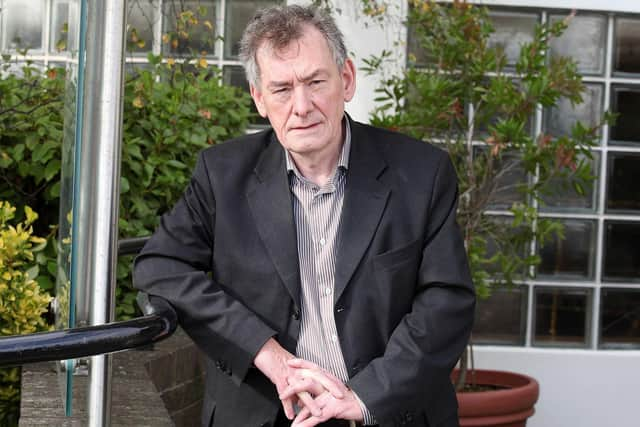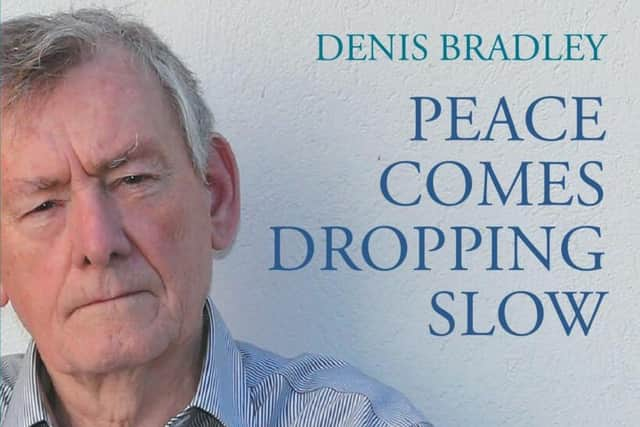Denis Bradley book recalls pivotal moments in peace process
and live on Freeview channel 276
The conversation is recalled in detail in ‘Peace Comes Dropping Slow: My Life in the Troubles’, Mr. Bradley’s new memoir that offers an insider account of the peace process.
“He was saying, 'We’ll become the peacemakers if the Brits aren't prepared to. We'll become the peacemakers because it is necessary',” Mr. Bradley told the ‘Journal’.
Advertisement
Hide AdAdvertisement
Hide Ad“I think that was a change of policy. That was a long way from the 'cutting edge of the IRA'. That was him saying, 'We have to make peace here but we'll make it on decent terms'. There were mistakes made after that but to be very fair he held it together. It wasn't easy.”


Mr. Bradley was part of an influential ‘backchannel’ between the IRA and the British that was first initiated in the 1970s.
‘Peace Comes Dropping Slow’ describes how the ‘backchannel’ facilitated negotiations in Brendan Duddy’s house during the 1975 IRA ceasefire but remained largely dormant until the late 1980s and early 1990s.
By that stage Mr. Bradley had not been involved for several years. He was ‘disillusioned with the British’ and the lack of progress.
Advertisement
Hide AdAdvertisement
Hide Ad“I hadn't really lost contact with McGuinness at the stage and one day we were sitting chatting and he said, 'I think we have to become peacemakers'. That drove me back into the ‘backchannel’ again.


“If that was where McGuinness' mind was and I believed he could deliver it. He was very influential within the broad movement. I knew he was being very sincere.”
The book recalls an episode in 1993 when Mr. Bradley arrived at Mr. McGuinness’ mother’s house in the Bogside with senior MI5 officer Robert McLarnon, a.k.a. ‘Fred’ sitting in the car outside.
The ‘backchannel’ had been in danger of collapse and Brendan Duddy suggested Mr. Bradley take ‘Fred’ to talk to Mr. McGuinness directly.
Advertisement
Hide AdAdvertisement
Hide Ad"That night was a night that stood out. I suppose the person that really made me think about it was McGuinness. One time we were at a wedding and he said 'do you remember that night?' It nearly didn't happen but it happened and we took it from there,” he reflects.
The book describes details of the ‘backchannel’ being leaked to the Press in November 1993. It was, Mr. Bradley says, the first time he really saw Mr. McGuinness under pressure.
"I don't know who put it out but it was out and that wasn't particularly easy. But I had always a very strong feeling. I used to say to him 'look, if you go there they will follow you' and he used to say to me 'you are good crack lad'. In other words, ‘it is easy for you to say that’.” I did have high regard for him at that level.”
For more on Mr. Bradley’s new memoir turn to Pages 8 and 9.
Comment Guidelines
National World encourages reader discussion on our stories. User feedback, insights and back-and-forth exchanges add a rich layer of context to reporting. Please review our Community Guidelines before commenting.
